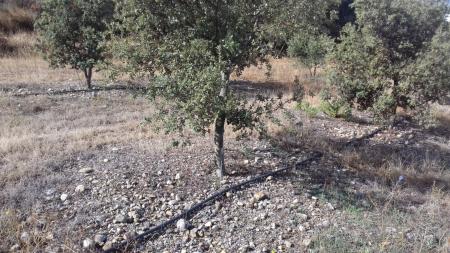
Objective:
The environmental factors that play a role in the fructification of black truffle are well known. In particular, low water availability during summer period inhibits fruiting. These elements result from observations and tests under controlled conditions. At the time of the study (late 1970s), there was no field trial to determine experimentally the influence of environmental factors in cultivated truffle conditions. A trial on a truffle farm located in south-eastern France was therefore set up in 1979 to clarify the influence of soil fertility and moisture levels on Black truffle fructification.
Context:
The truffle plant was installed between 1960 and 1962 in a former vineyard. It was therefore between 17 and 19 at the study was carried out. It consists of pubescent oaks mixed with some green oaks. It is located at an altitude of 200m and the annual rainfall is 759 mm, with a very strong summer deficit. The soil characteristics are very favorable to truffle production. Some areas of the truffle were irrigated, mulched and fertilized with phosphorus and nitrogen. Phosphorus was supplied at a rate of 200 kg per hectare as a 45% triple superphosphate, nitrogen at 100 kg as a 33% ammonitrate.The truffle harvest was then done during two consecutive seasons and individualized by zone in number of carpophores and fresh weight.
Contacts:
François Le Tacon, le_tacon@nancy.inra.fr
Further information:
Le Tacon F., Delmas J., Gleyze R., Bouchard D. (1982). Acta Oecologica. Oecol. Applic, 1982, Vol. 3, n°4, p. 291-306